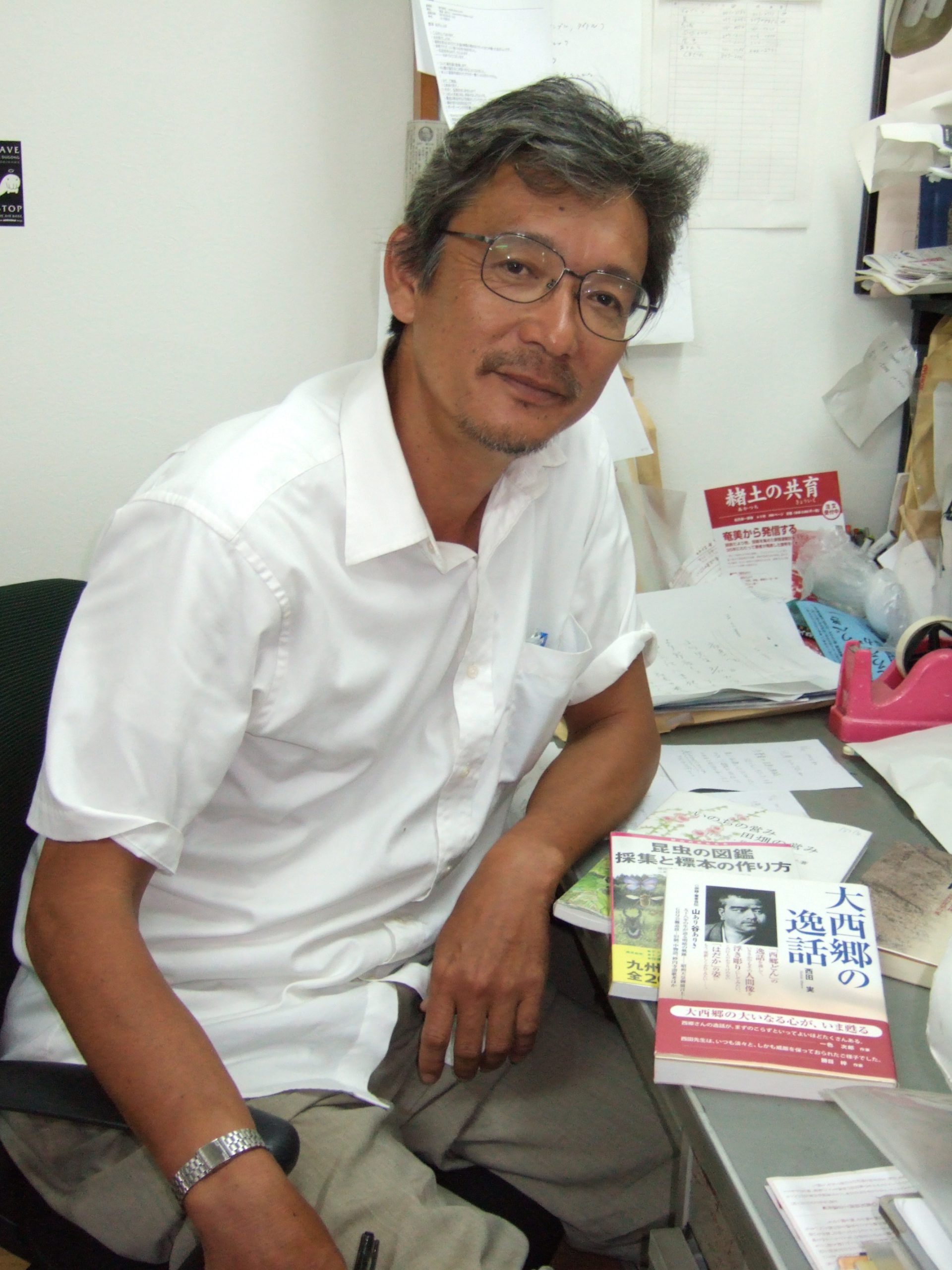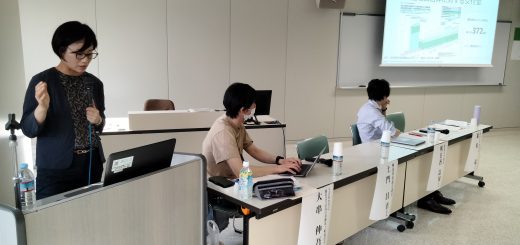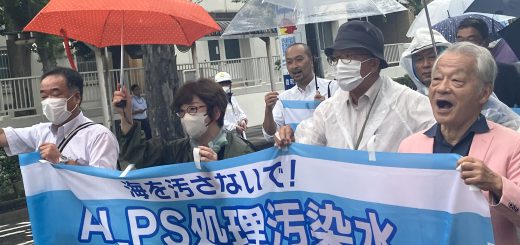Who’s Who: Mukohara Yoshitaka – A Person Having Both Feet Firmly on the Ground
By Somatani Kenta (Stop the Sendai NPS! March 11 Kagoshima Rally Planning Committee)
Mukohara Yoshitaka
Co-Director, Stop the Sendai NPS! March 11 Kagoshima Rally Planning Committee. Representative Director, Publishing House Nanpou Shinsha
I remember that it was around 2018. I visited the Kagoshima Central Station East Exit Square as a newspaper reporter to report on an anti-nuke rally held there by the Stop Sendai Nuclear Power Station (NPS)! March 11 Kagoshima Rally Planning Committee. Wearing the noticeable red towel around his neck as always, Mukohara Yoshitaka spoke out from the stage: “We are not uninformed, unenlightened people.” Although I was there as a reporter, I was deeply moved and became emotional.
I met Mr. Mukohara for the first time in 2014. I was transferred from the Mito branch to the Kagoshima branch of the newspaper company I worked for, and started to report on anti-nuke citizen groups. Kyushu Electric Power’s Sendai NPS (Satsumasendai City, Kagoshima Prefecture) was restarted in 2015, ahead of all the reactors in Japan, under the new nuclear regulation system. Mr. Mukohara led a rally every day in front of the Sendai NPS gate. What I especially clearly remember is that on the very morning of the reactor restart, he locked himself in his car, parked alongside the gate, for a few hours. It was midsummer. Sweating massively, he was speaking with police officers. He laid his life on the line. I cheered for him, although as a reporter I should probably not have acted that way. Later, I had more opportunities to talk with Mr. Mukohara. At press conferences and telephone interviews, his comments were always punchy and sharp. I believe that his way of life enables him to deliver words with such strong impact.
Mr. Mukohara says that it was when he, as a university freshman in 1976, participated in a series of lectures and listened to Prof. Ichikawa Sadao, a radiation geneticist, that he noticed the unreasonableness of nuclear power plants. In the book, On the Fort—30 Years’ Bookmaking at Nanpou Shinsha, authored by himself, Mr. Mukohara writes: “The unethical nature of nuclear power generation was instilled in my cerebrum through the lecture.” After graduation, he joined an advertiser-publisher in Tokyo. Then he returned to Kagoshima, and established Nanpou Shinsha in 1993. Then, in 1996, he established the Kagoshima Anti-Nuclear Network. Following the Tokyo Electric Power Fukushima Daiichi disaster, he ran for the Kagoshima prefectural governor in the 2012 election. He has been a longtime leader of Stop Sendai NPS! March 11 Kagoshima Rally Planning Committee.
However, he is not a day-in-day-out anti-nuclear activist. He keeps chickens and honeybees at his company and cultivates rice and vegetables in nearby fields. He uses ducks in the rice paddies. In winter he processes the ducks for consumption. While walking on the path, he enjoys communicating with living things such as weeds, flowers and butterflies. On the seashore, he fishes and eats the catch. Another book by Mr. Mukohara, Picture Book of Seashore Edibles, is a masterpiece. He undoubtedly leads a ground-based life. No reason is required for him to fight against nuclear plants, which contaminate the ground. His way of life is completely opposite to what nuclear plants symbolize: short-sighted benefits, as represented by the old saying, “We don’t care what follows.” Namely, his everyday lifestyle itself is against nukes, and that is why his words are powerful and attract people.
Around the end of 2022, the committee launched a signature campaign to realize a prefectural referendum concerning the planned extension of the operation period of Sendai NPS beyond 40 years. When the committee started to discuss the campaign, the discussion was in a mess with opposing opinions: “If we could not gather enough signatures, there would be an adverse impact.” However, Mr. Mukohara took the initiative and paved the way for the campaign. At the end of the campaign, the committee had gathered twice as many signatures as the number required by the legislation to call a referendum. The success was owed to Mr. Mukohara, the executive secretary of the group, who talked and acted vigorously. I joined the signature campaign and other activities with Mr. Mukohara after quitting the newspaper company. After entering the circles of the citizens’ movement, I realized his real strength.
I think it can be said that the anti-nuke movement in Kagoshima is anchored by Mr. Mukohara. He is an outstanding leader of the anti-nuke community.



